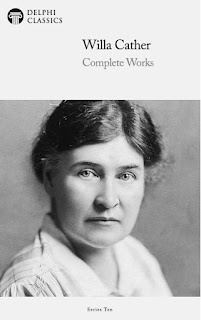🔵 It is a story within story, or a frame story. A geologist met his college friend, a railroad clerk. Boarding on the train from Grover Station to Cheyenne, the geologist asked his reticent friend, "Terrapin" Rodgers (Terrapin = freshwater turtle = reticent), to tell a story about the mysterious murder of the Grover station agent.
About Grover:
"You know what Grover is, a red box of a station, section house barricaded by coal sheds and a little group of dwellings at the end of everything, with the desert running out on every side to the sky line."
🔵 Larry, the victim, is
Rodgers' intimate friend. He promised to come to the inaugural ball at
Cheyenne, and dance with a girl he loved: Helen Masterson. He will take an
extra (train) from Grover station right after his work's done. The ball started
and finished, but Larry never appeared.
🔵 Feeling uneasy, Rodgers
came to Grover Station, and there's no sign of Larry, either at the office or
every train started from Grover last night. He's no where to be found.
🔵 Rodgers got info from a
girl, who'd seen a stranger meeting Larry on that fatal night at Larry's
office, and seemed to quarrel with him. From the girl's description, Rodgers
felt sure that the man is Freymark.
🔵 Freymark is portrayed
as a shady character. He has involved in a shady business when he's the
railroad chasier clerk in Cheyenne, and it was Larry who's given him up,
resulted in his discharge, and Larry took over the position. Moreover, Freymark
was in love with Helen, but Helen chose Larry instead. On that fatal night, he
also overheard Larry's plan which he's dictated over the radio to Rodgers.
Therefore, there's no question that Freymark has had something to do with
Larry's disappearance. But, where was Larry, and what had really happened?
🔵 Rodgers stayed the
night at the station office that night, when lo and behold... Larry appeared in
an apparition, giving his friend clues of the real event!
🔵 An inaugural ball, a
dance, a murder, and a ghost, all happens in a lonely small town, surely
promise an interesting story. And it is interesting! But what interest me most
is not that. It is the racism shade in this story.
🔵 Freymark is a
mix-raced, his father is French, his mother Chinese. He's "socially ambitious
and extremely sensitive of his Asiatic blood after having been blackballed at a
club." He then went to Europe and let people assume him as Jewish. At the
inaugural ball, Larry's wounded dog entered the hall, threw himself at
Freymark's feet and uttered a piteous howl. At this, Freymark was madly enraged
and cruelly kicked the wounded brute across the hall. The way Rodgers describe
the incident isn't something that I can easily forget:
"There was something
fiendishly brutal and horrible in the episode, it was the breaking out of the
barbarian blood through his mask of European civilization, a jet of black mud
that spurted up from some nameless pest hole of filthy heathen cities."
🔵 Now, when faced with
racism remarks or allusions in a book, I'm never sure whether it's the writer's
personal view, or whether he/she is criticizing society racism views through
the characters. Therefore, I won't jump quickly to the conclusion that Cather
is a racist, but I found the passage really unsettling. It's not a mere
generalization of a race (which ignorance could lead a writer to write
innocently about). But to me "some nameless pest hole of filthy heathen
cities" sounds full of hatred.
🔵 Again, I'm not sure
it's Cather's personal view of Chinese race, but to include such hatred in her
hitherto comforting books is quite shocking to me. In short, the racism has
marred my enjoyment of the story, and I truly hope to be back to Cather's usual
quality in next month's short story!
Rating: 3 / 5



I'm so glad you've jumped into the WCSSP! Sadly, the racism in this story is not the first to appear in Cather's work. It is shocking to read such racist character descriptions when later in her career she would write about other immigrants with such compassion. She used such "Yellow Peril" tropes in at least two other stories, "A Son of the Celestial" and "The Conversion of Sum Loo." Did she write using these slurs and stereotypes because she believed them, or because they were in vogue and she wanted to be published? I don't know. The stories we're reading this year are from early on in her career and most were never collected and published in book form, implying that she didn't think they were very "good" or at least not good enough.
ReplyDeleteP.s. I love that you included a photo of Grover Station in this post!
DeleteIt could also be that at the time Cather grew up, stereotypes were not regarded as negative because people used to do that, so that she didn't feel it wrong when she wrote those stories. But in this particular story, it's more than slurs, it's pure hatred. And that's why I'm quite shocked.
DeleteOh well, I can only hope that next story will get far better.
I was wondering about Grover Station, so I googled it, wanted to know whether it really existed and whether it's still there, and seeing an object that you read in books, quite helps one imagining, doesn't it? And that's how I found the photo; it's exactly like how I was imagining it!